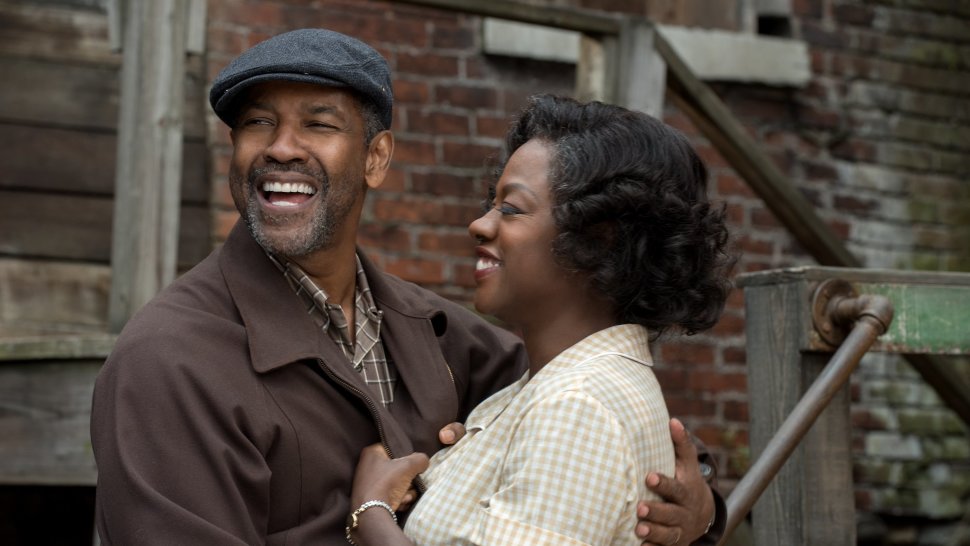
Denzel Washington directs and stars in the movie version of the August Wilson play Fences, which manifests as an actor’s showcase. Set in post-World War II America, Fences is entirely character-driven, and revolves around its two main characters, the fiftyish sanitary worker Troy (Denzel) and his stalwart wife Rose (Viola Davis).
A prototypical alpha male, Troy is an entertaining motormouth, which is fun to watch and also initially masks the exceeding complexity of his character. He’s a proud man – fiercely proud of his paycheck and home ownership, but not above skimming from someone vulnerable to secure it. He is bitter that racism denied him a professional sports career, but when improved race relations give his son more opportunity, Troy’s impulse is to sabotage it. His chief identity is as the head of his family, but he can betray other family members. Living in a racist society has helped mold Troy, but so have his own gifts and flaws.
Rose is utterly steadfast, a woman devoted to making things operate smoothly – despite Troy – in their home and family. Deep waters run silent, and – at first – we don’t see that Rose has a mind and identity and pride of her own.
Viola Davis’s performance is brilliant and powerful. As an actor, Denzel is at the top of his game. Mykelti Williamson is especially good as Troy’s brother, a brain-damaged veteran of the Pacific war. Stephen Henderson also delivers a nomination-worthy turn as Troy’s neighbor and co-worker Bono.
Thoughtful and well-acted as it is, Fences is a filmed play, and it’s very stagey. Every so often, it’s time for a monologue and one really fine actor stands and declaims while the others watch and regard him/her. It’s really not cinematic in any sense.
The Wife was profoundly disappointed that I did not share her admiration for Fences. She thinks that Viola Davis’ performance and the growth of the character of Rose make this an excellent movie. She even directed me NOT to write about Fences, lest I “desecrate Viola Davis’ performance”.
